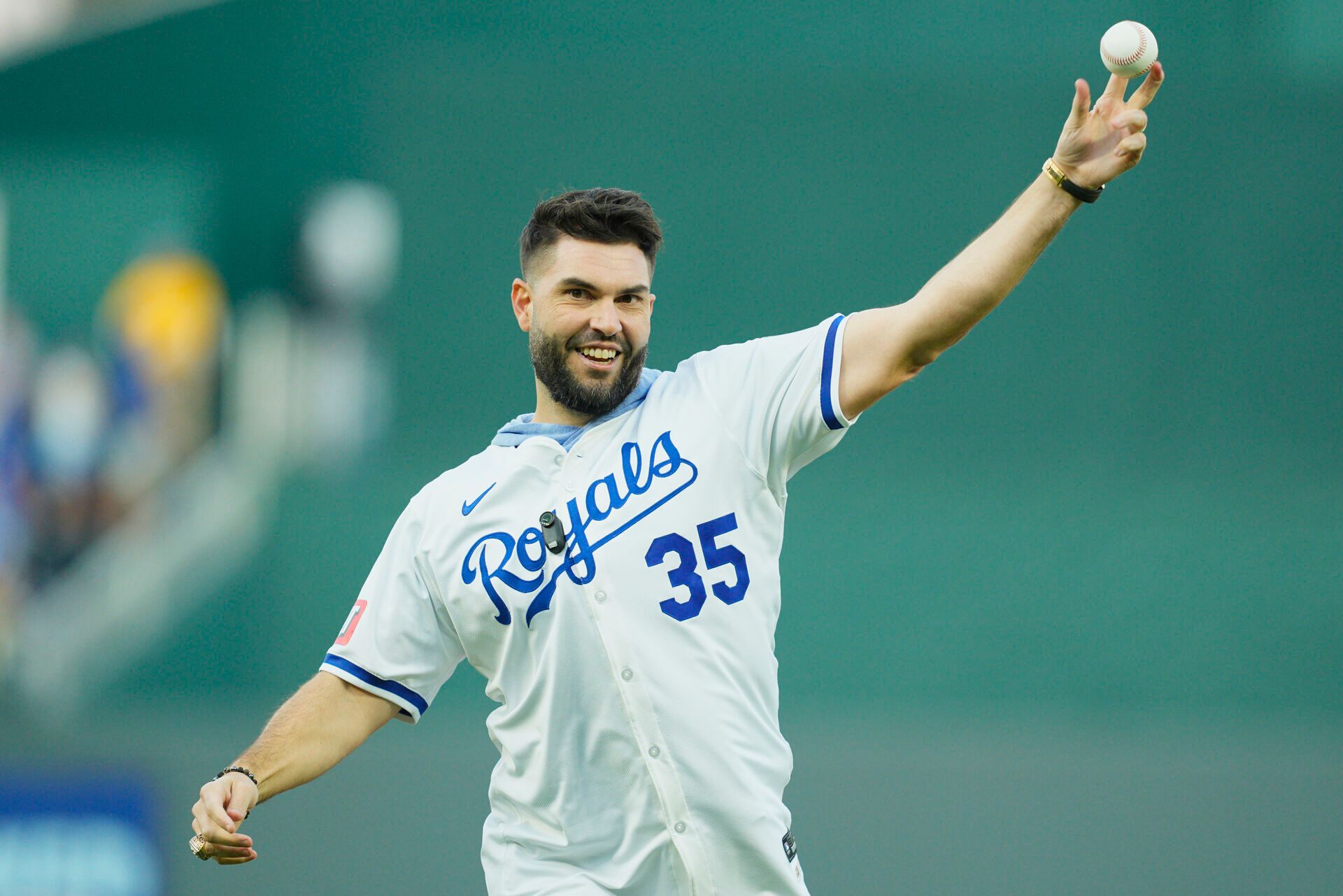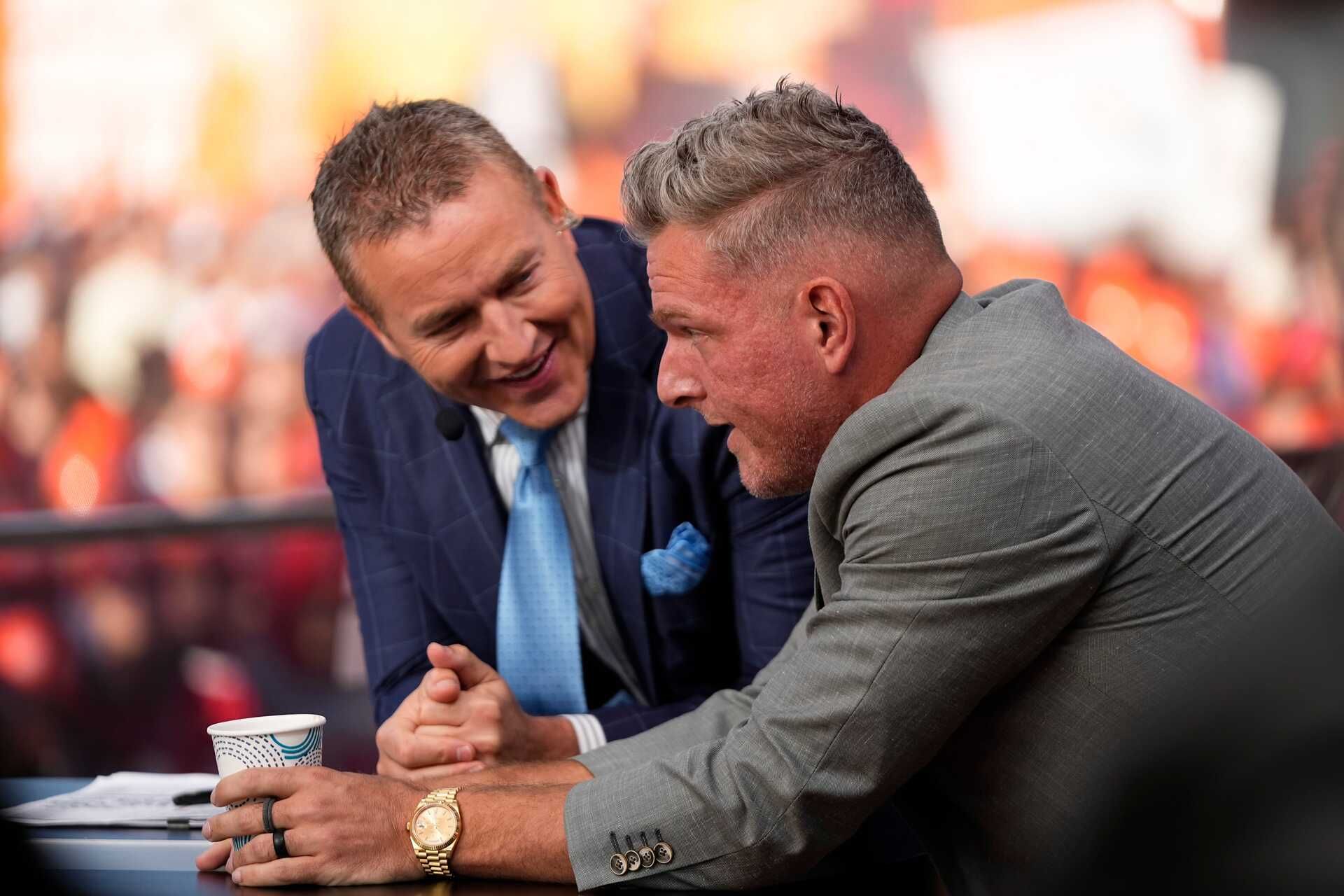Welcome to The A Block, Awful Announcing’s daily newsletter, where you’ll always find the latest sports media news, commentary, and analysis.
Did someone share this newsletter with you? Sign up for free to make sure you never miss it.
🎤 QUICK START ✍️

Stephen Brashear-Imagn Images
⚾ Coverage disparity. ESPN plans a more measured approach to Cal Raleigh's home run chase than Aaron Judge's wall-to-wall 2022 treatment, with college football fans likely breathing a sigh of relief after the network repeatedly interrupted games for Judge's at-bats. Raleigh sits at 60 homers with four games left to tie the AL record.
🌐 Streaming expansion. Netflix reportedly lands MLB's Opening Day package for three years, beginning with Yankees-Giants on March 25, 2026, completing MLB's post-ESPN reshuffling alongside NBC taking over Sunday Night Baseball and the Wild Card round.
📺 Carriage chaos. NBCUniversal and YouTube TV face potential blackout as their agreement expires on September 30, with the streamer demanding lower rates while NBC bristles at being treated like a traditional cable provider. Sunday Night Football on October 5 would be the first major casualty.
🏌️ Celebrity golf show. Omaha Productions assembles a star-studded guest list for Ryder Cup pregame show "Breakfast at Bethpage," featuring Colin Jost, Nate Bargatze, Robert Pattinson, and Michael Phelps as the Manning brothers expand their entertainment empire beyond football.
📻 Sideline surprise. Colin Cowherd hinted at his USC sideline reporting debut for Fox's Big Noon Kickoff at Illinois, with the talk show host promising he'll "be broadcasting Saturday on USC" in what would be an unusual crossover assignment.
🚨LEADING OFF 🚨
College football's self-inflicted Saturday night fever

Grace Smith/IndyStar / USA TODAY NETWORK via Imagn Images
Kirk Herbstreit will spend Saturday night living out college football's most absurd contradiction. He'll be calling Alabama-Georgia while simultaneously monitoring Penn State-Oregon on his sideline television setup, splitting his focus between two elite matchups that should never be competing for the same audience.
This weekend's scheduling disaster perfectly illustrates the sport's broken priorities. Two top-five showdowns air simultaneously at 7:30 p.m., creating the exact scenario that drives ESPN's marquee analyst to call for a college football commissioner who can prevent blue-blood programs from cannibalizing each other's ratings.
"It makes no sense to have all these games on one weekend," Herbstreit argued during an appearance on the SI Media podcast.
He's absolutely right, but his solution misses the point entirely.
College football doesn't have a scheduling coordination problem. It has a media rights fragmentation problem that no commissioner can resolve without completely restructuring the sport's business operations.
The Big Ten isn't moving Ohio State games to accommodate SEC television schedules, and the SEC isn't restructuring Alabama-Auburn for Big 12 ratings. Each conference operates as an independent business entity with separate billion-dollar media contracts and competing priorities. The Big Ten's seven-year, $8 billion deal with Fox, CBS, and NBC is set to run through 2030. The SEC's arrangement with ESPN is set to extend through 2034. The ACC just locked up with ESPN through 2036.
These aren't handshake agreements that can be modified for better national coordination. They're legally binding contracts worth more than the GDP of small countries. Fox paid premium money to own the Big Ten's noon window. NBC secured prime time specifically to compete with ABC's Saturday Night Football. CBS bought the 3:30 slot to replace its lost SEC inventory.
Networks won't voluntarily coordinate scheduling with competitors. The entire business model depends on protecting premium windows and marquee inventory. Fox wants Penn State-Oregon to compete directly with ABC's Alabama-Georgia because it forces viewers to make a choice. That choice drives urgency and engagement in ways that complementary programming never could.
Herbstreit's commissioner proposal reflects a fundamental misunderstanding of why college football operates differently from the NFL. The league has one commissioner and unified deals that enable centralized scheduling. College football has dozens of conferences with separate media contracts worth billions of dollars. No commissioner possesses the authority to override Fox's contractual right to the Big Ten's prime time inventory or ESPN's exclusive SEC windows.
The current system creates obvious problems beyond this weekend's marquee conflict. Other Saturdays offer limited compelling options, while elite matchups get buried against each other. But this scheduling chaos isn't an accident – it's the inevitable result of media rights deals that prioritize individual conference revenue over national coordination.
Consider the financial stakes involved. Each Big Ten school receives approximately $75 to $ 100 million annually from its media deal. SEC schools are projected to earn similar amounts from their ESPN arrangement. The ACC's new revenue distribution plan creates a "brand fund" that rewards schools generating the most television value.
These conferences aren't going to sacrifice their most valuable programming for the greater good of college football. The sport's decentralized structure means that every conference optimizes for its own television deals, rather than relying on national coordination.
The real problem isn't scheduling conflicts between great games. It's that college football has become a collection of competing television products rather than a unified sport. Conference realignment prioritizes media market expansion over regional rivalries. Schools change conferences based on television revenue projections, not competitive balance or geographic logic.
Saturday's chaos represents the natural endpoint of this process. When every conference operates as its own media entity with billion-dollar contracts, coordination becomes impossible. The Big Ten aims to showcase the Penn State-Oregon game in primetime to justify its NBC deal. ESPN needs Alabama-Georgia to anchor Saturday Night Football and drive attention to the SEC Network.
Both games deserve marquee treatment and maximum exposure. Instead, they're forced to compete against each other while other weekends struggle to generate comparable interest. This isn't poor planning. No. It’s the inevitable result of a system that prioritizes individual conference revenue over sport-wide optimization.
Herbstreit will experience this dysfunction firsthand on Saturday, calling one elite game while monitoring another on his sideline screens. He'll be living proof that college football's current structure prioritizes network contracts over fans, analysts, and the sport itself.
The solution isn't a commissioner with magical scheduling authority. It's recognizing that college football's media rights model has created a system where great games compete against each other instead of complementing each other. Until conferences prioritize sport-wide coordination over individual television deals, Saturday's scheduling chaos will remain the new normal.
Herbstreit can keep his four-pack of sideline televisions ready. He's going to need them.
📣 SOCIAL EXPERIMENT 🌟
Adnan Virk, Chris Young, and Yonder Alonso lost their minds over Cal Raleigh's 59th home run on MLB Network:
FS1's Wake Up Barstool crew cooked, ate, and threw up an actual football. Peak sports media content right here:
Colin Cowherd seemingly forgot the Giants' wild-card victory over the Vikings just two seasons ago while discussing their playoff drought.
📺 INDUSTRY INSIGHTS 🎬

Jay Biggerstaff-Imagn Images
Awful Announcing has learned that Eric Hosmer will debut as an MLB Network analyst on the final Friday of the regular season, joining MLB Central (10 a.m. ET) and MLB Now (12 p.m. ET) for his first guest analyst work with the network.
NASCAR viewership continues at historic lows as F1 draws closer in American television ratings, highlighting the stark contrast between the sports' trajectories in the U.S. market.
Kyle Lowry joins Amazon's NBA coverage as an active player, making select appearances throughout the season with "increased responsibilities in the future" as the veteran guard continues his playing career.
Hunter Pence joins ESPN for MLB Wild Card coverage, adding the former Giants outfielder to the network's postseason analyst rotation alongside its regular baseball talent.
MoffettNathanson analyst Robert Fishman suggests that the NFL could tier media rights by the quality of the game, using the Premier League model with "Tier A, Tier B, and Tier C" packages, rather than the traditional NFC/AFC splits. The restructuring could leave legacy broadcasters like Fox and CBS with lower-quality games while streaming platforms like Netflix, Amazon, and YouTube secure premium inventory.
📣 NOTABLE QUOTABLES 🗣️

Adam Cairns/Columbus Dispatch / USA TODAY NETWORK via Imagn Images
"I think he overhypes the fraction of the audience that was like, 'What's this guy's deal?' I think he blows that out of proportion…There were some people that were like, 'Why's this guy on the show?' To me, it's a very small group." - Kirk Herbstreit on Pat McAfee potentially exaggerating his critics during his early days on College GameDay.
"I've been really enjoying J.J. Watt on these broadcasts. He and Ian Eagle are a fantastic tandem as the No. 2 team for CBS. And he's having fun with it. He could easily be in the studios and having a very nice situation there, but he's like, 'I want to go on the road every week. I want to call these games. I want to touch the grass.'" - Peter Schrager’s effusive praise for Watt's early broadcasting success.
"Jimmy didn't say this at all, and you know it. If you can prove otherwise, I promise I will buy you the sexiest sofa I can find. You really should embrace free speech more. It's the very reason you still have a job after referring to your current boss as 'America's Hitler.'" - Cousin Sal Iacono, locking horns with VP J.D. Vance over his Jimmy Kimmel comments.
"Going from the absolute latest kick in the country to the absolute earliest kick in the country has its challenges. We don't make the schedule. Clearly." - Lincoln Riley ripping USC's extreme kickoff scheduling after playing Michigan State at 11 p.m. ET one week and Illinois at noon ET the next.
"I say a lot of nice things about him, but the way the world works, they pick up on one negative thing you say about him and it becomes a headline and it becomes memes and it gets back to him and he probably thinks I'm highly critical of him, when I've mostly been complimentary of him." - Brandel Chamblee blaming media for skewing his relationship with Bryson DeChambeau after repeatedly calling the golfer a "captain's nightmare."
️🔥 THE CLOSER 🔥
NBC and CBS are getting fleeced by Fox

Credit: Big Ten Conference
We are a couple of years into the Big Ten's new landmark television deals, but the trends are becoming clear. It's always better to own rights than to rent them. Fox will always have the biggest games, such as Ohio State-Michigan or Ohio State-Texas, that can make a season. And most weeks, at least one or both of the Big Ten's secondary networks are going to struggle to air a truly compelling matchup.
If NBC and CBS are only able to secure a small handful of top teams and top games every season and are routinely outperformed by the competition, they must ask themselves if they are truly getting their money's worth.
Click to read more from Awful Announcing’s Matt Yoder on how Fox maintains control over the Big Ten's best games while NBC and CBS pay premium prices for second-tier content.
Thank you for reading The A Block! Sign up for free to make sure you never miss it.
